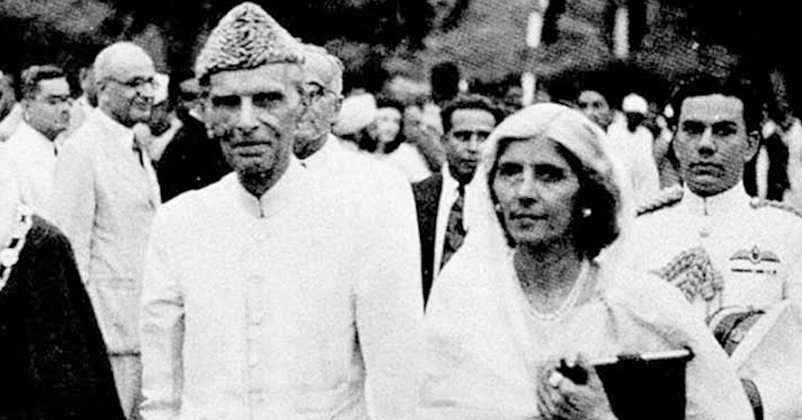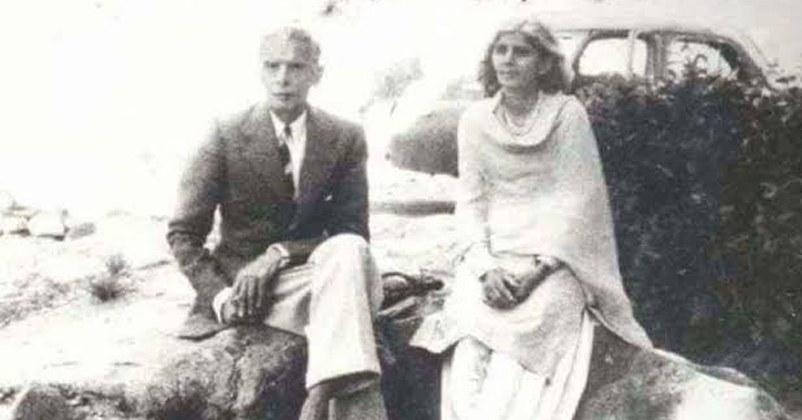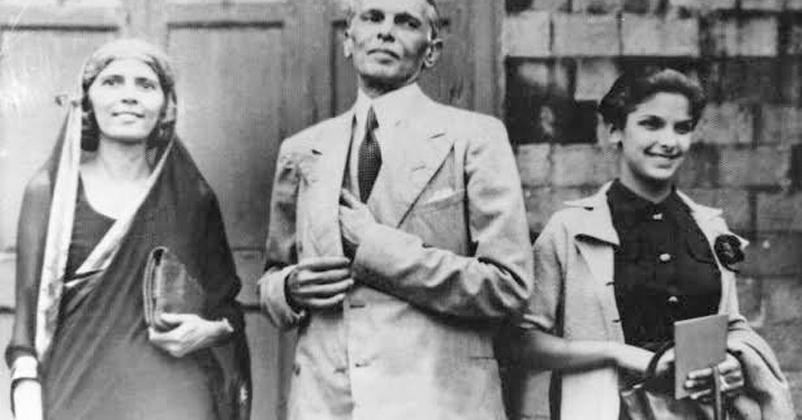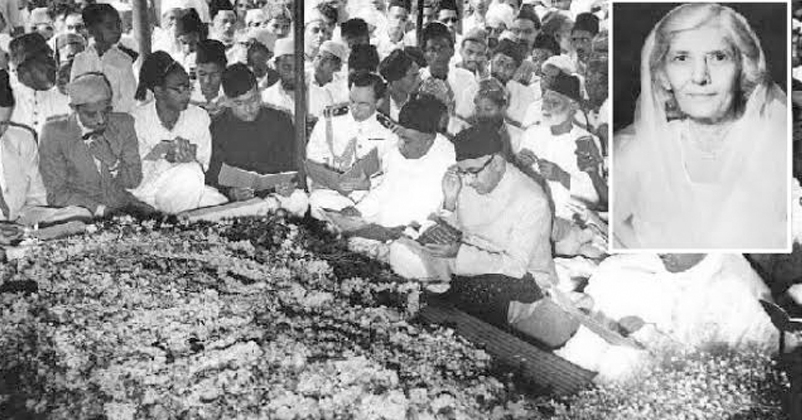The mysterious life and death of Fatima Jinnah – The ‘Madar-e-Millat’ of Pakistan
18 Apr 2020 11:00:50

Mohammad Ali Jinnah, the founder of Pakistan was extremely fond of his younger sister, Fatima Jinnah. Fatima proved to be a great support and confidante to brother Jinnah and was a bright ray of light in Jinnah’s life as described by himself once. However, for two years after Jinnah’s death, Fatima was not allowed to address any public meetings. It was only on Jinnah’s third anniversary that she addressed Pakistan on Radio. And during that time as well, when she started to speak her heart out speaking of Jinnah’s death, of the ambulance breaking down, she was cut off abruptly. In her last times, she even regretted the creation of Pakistan by his brother Mohammad Ali Jinnah and called it a huge mistake.
On his closeness with Fatima, brother Jinnah once described her in his words as, ‘Miss Fatima Jinnah is a constant source of help and encouragement to me. In the days when I was expecting to be taken as a prisoner by the British Govt., it was my sister who encouraged me, and said hopeful things when revolution was staring me in the face. Her constant care is about my health.’ On another occasion he said, ‘My sister was like a bright ray of light and hope whenever I came back home and met her. Anxieties would have been much greater and my health much worse, but for the restraint imposed by her’.
Fatima Jinnah died an unfortunate death at the age of 71, as many believed she was murdered. Despite as many as half a million followers taking part in her funeral procession, the then Government did not allow people of Pakistan to have a last look at Fatima Jinnah. While the Government called her death natural, many including her family believed she was assassinated and also filed a petition for the same. Her book ‘My brother’ too was banned by the Quaid-e-Azam Academy of Pakistan being declared against the ‘Nazaria-e-Pakistan’.

Fatima Jinnah – the great contributor to the welfare of people of Pakistan, after the nation came into existence
Mohammad Ali Jinnah had seven siblings, he, being the eldest in the family, had sister Fatima born on 30th July 1893 in Karachi as second to him. Fatima’s contributions in the welfare of the people of Pakistan were noteworthy. When the All India Muslim League was formed, Fatima Jinnah became the member of the working Committee of Bombay Provincial Muslim League and worked there until 1947. She was part of Lahore resolution of the Muslim League in March 1940 and it was her, who paved way for All India Muslim Student Federation in Feb 1941 at Delhi. Post India-Pakistan separation, Fatima Jinnah worked for the settlement of the Muhajirs in Pakistan and created a women relief committee named All Pakistan Women Association, founded by Rana Liaquat Ali Khan.
Fatima Jinnah was popularly hailed as “Madar-e-Millat’, the mother of the nation for her contribution in the formation of Pakistan. Her rallies witnessed millions of people from across Pakistan who would line up in huge numbers to have a glimpse of her. Fatima Jinnah’s name was an important one among the prominent leaders of Pakistan Movement. She also contributed in the social development sector of Pakistan, along with Begum Liaquat Ali Khan she worked in the realm of women awakening and participation in national affairs. On the political front, after the creation of Pakistan, Fatima stood opposite to Ayub Khan in 1960, for the elections that were to be held in 1965 and had four candidates in the race to constitute the electoral college for the presidential and assembly elections. Earlier to that, apart from her travel to East Pakistan in 1954, she had hardly jumped in active politics. While Ayub Khan was a known face in politics, Fatima had the great advantage of being the sister of the leader of All India Muslims’ Quaid-e-Azam. However, she lost the elections to Ayub Khan who then went on to become the President of Pakistan.
Fatima Jinnah’s address to the nation on radio post Jinnah’s death, and shocking revelations she made in her book “My brother’ on his secret death
Fatima Jinnah, described as ‘the frail looking, graceful but gritty sister of Jinnah’ was a qualified dental surgeon having received a degree (in dentistry) from the University of Calcutta in 1914. She opened a dental clinic in Bombay in 1923. After the death of Jinnah’s wife Rattanbai in 1929, Fatima closed her clinic and moved in with Jinnah at his Malabar Hill bungalow to be a political worker and a close and trusted confidante of her brother. According to their driver, Jinnah depended on Fatima for everything. Even when he played billiards, the one sport he liked, Fatima had to watch him play. ‘If the shot went through as planned, he would smile triumphantly at his sister’, disclosed their driver.

Fatima Jinnah and Mh Ali Jinnah with his daughter Dina Nadia
After Jinnah died, Fatima Jinnah was requested to address the nation on the radio. However, the address was curtailed. The director general of Radio Pakistan was given instructions to switch off the speech as soon as she started criticizing Liaquat Ali, the then PM of Pakistan.
Fatima Jinnah’s book ‘My Brother’, though written in 1955, was published only in 1987, thirty-two years later. The reason appears to be the criticism that she levelled against the early leaders of Pakistan. She made five important points in the book, as noted by Nadeem F. Paracha, that her brother was ‘betrayed’ by even some of his closest comrades who had worked with him during the Pakistan Movement; that the deterioration in his health was due to such betrayal; that she was especially resentful towards PM Liaquat Ali Khan, regarded as Jinnah’s closest colleague. Also, that Jinnah told her that many of his former colleagues were coming to meet him when he was recuperating in Ziarat only to determine how much life there was left in him implying that they were most probably waiting for him to quietly perish.

And lastly, that she was particularly pained by the treatment meted out to Jinnah at the end when the ambulance carrying him from Mauripur airport to the Governor General’s residence on 11 Sept 1948 broke down in the middle of the road. Jinnah expired that night after having been stuck in the ambulance in an oppressive atmosphere. Following Jinnah’s death in September 1948, Fatima Jinnah ebbed further and further from the political awareness of the country. No longer the Governor General’s sister, she lived all alone in the 24 room, red stone Mohatta Palace (that had been requisitioned) near the sea.
The combined opposition parties pulled her out of her self-imposed political retirement in 1964 to challenge Field Marshal Ayub Khan in the presidential elections that were to be held in January 1965. Contesting against Ayub in the presidential elections was her final political foray. It was, however, ironic that she was contesting against Ayub Khan.
When Fatima was accused by General Ayub Khan of leading an ‘unnatural life’, and why she often locked herself in the second story of ‘Mohatta Palace’
In 1958, after Ayub had taken over power, and there were spontaneous celebrations throughout the country, she had summed up the feelings by saying: ‘A new era has begun under General Ayub Khan and the Armed Forces have undertaken to root out the administrative malaise and the antisocial practices, to create a sense of confidence, security and stability and eventually to bring the country back to normalcy. I hope and pray that God may give them wisdom and strength to achieve their objective.
In her election speeches Fatima Jinnah criticized Ayub and his family for corruption. She particularly zeroed in on Bhutto, then a minister in Ayub’s Govt., for personal condemnation, calling him an inebriate and a philanderer’ in a speech in Hyderabad. Ayub retaliated in a press conference in Lahore by accusing her of leading an ‘unnatural’ life (a reference to her spinsterhood) and being surrounded by ‘perverts’. He also accused her of being an Indian and American agent. This was also reported in an article in Time Magazine. This shocked everyone but Ayub managed to get away with it since the campaign rhetoric had sunk to a really low level with rival parties freely abusing each other.Ayub won the 1965 elections with a narrow margin, only 49,591 of the 80,000 electors voted for him. It was in East Pakistan and Karachi that Fatima Jinnah’s democracy argument had great resonance.
Abida Hussain, who would later become a prominent politician from south Punjab and Pakistan’s ambassador to the US, provided a graphic description of Fatima Jinnah’s condition. She and her mother visited Fatima Jinnah at Mohatta Palace in late July 1965. After ringing the front bell for a long time, the door was opened by Fatima Jinnah herself. She led them into a dark and stifling sitting room. As the windows opened and the light and air entered the room, Abida was taken aback to see how old and frail Fatima Jinnah looked. According to Rafia Zakaria, ‘every night Fatima Jinnah locked herself in the second-story bedroom of Mohatta Palace. Every morning when she awoke, she dropped the key from the balcony upstairs so that her attendant below could retrieve it and bring her morning tea.’
Fatima Jinnah then asked Abida Hussain to ring the bell so that her deaf old servant brought some tea or limbo paani(lemonade). She added sorrowfully, ‘Kishwar, as you can see, my sofas have loose covers on because I seldom have visitors. They all go to see my half-sister, Shireen Bai, these days, since she has an “in” with the Ayub Khan’s Government.
Fatima in her last times regretted for the creation of Pakistan and called it Jinnah’s big mistake. Was she really murdered as claimed by her family and followers in Pakistan!
What Fatima meant with her words to Abida Hussain showed her disappointment with the political developments of Pakistan and its government. Fatima then said to Abida, “Had my brother foreseen all this; would he have struggled so hard for the creation of Pakistan? Would he have wanted a country without a constitution, without justice, where skilled sycophants become powerful while people with integrity and dignity start falling behind? If this was what Pakistan was to become, then making Pakistan was a foolish mistake.’
However, on 9 July 1967, no key was dropped from the bedroom balcony but no one noticed. It was only in the evening that the domestic maid finally told a neighbour. It was near dusk by the time a locksmith opened the door. Inside her bedroom, Fatima Jinnah lay cold, having passed away hours before she was found. She was 71. While the Govt. announced the cause of the death to be a heart attack, many including Jinnah’s nephew Akbar Pirbhai, insisted that she was murdered. He even met Ayub Khan and requested that a judicial commission be appointed to examine if she had been assassinated, a request that was turned down by Ayub. This was reported under the headlines ‘New Twist to Miss Jinnah’s controversy’. It is believed that her followers were not allowed to see her face to confirm that she had not died unnaturally.
She was buried in Karachi. Almost half a million people took part in her funeral procession. Many in the procession raised slogans against the Ayub Khan regime. There was some rioting in which members of the Jamaat-e-Islami and left-wing groups were involved. The police first resorted to tear gas and later opened fire in which about 12 people were killed.
In 1972, the Urdu daily Jang reported that a court in Karachi had admitted a petition which stated that the Govt. did not allow the people to have a last look at Fatima Jinnah. The people who bathed her body said there were deep wounds on her body, signs of torture and a deep gash in her stomach. While a date for the hearing was announced, no one knows what happened to the petition.
Her book ‘My brother’ was banned by the Quaid-i-Azam Academy on the grounds that her ideas were against the ‘Nazaria-e-Pakistan’ since it contained unfavourable references to Liaquat Ali. When the book was published after 32 yrs of its writing, those portions were censored.